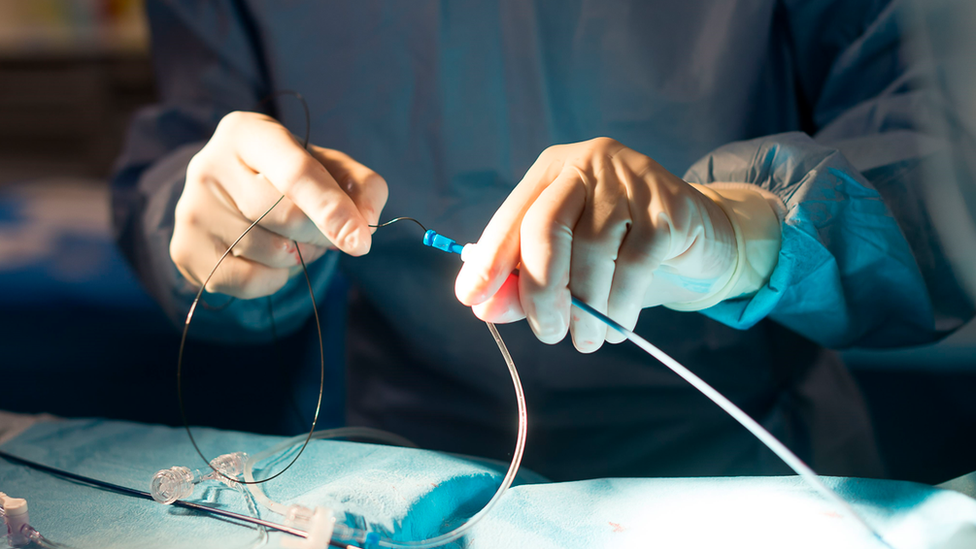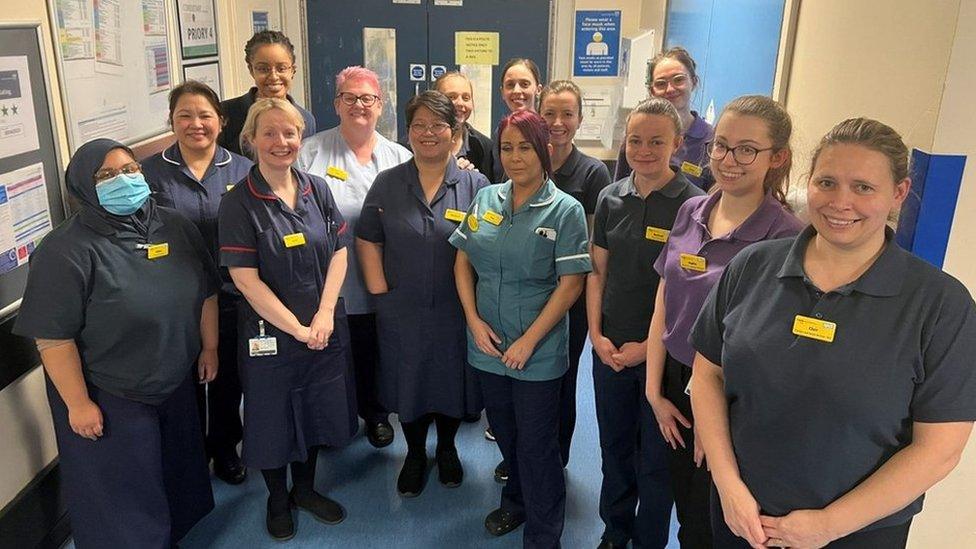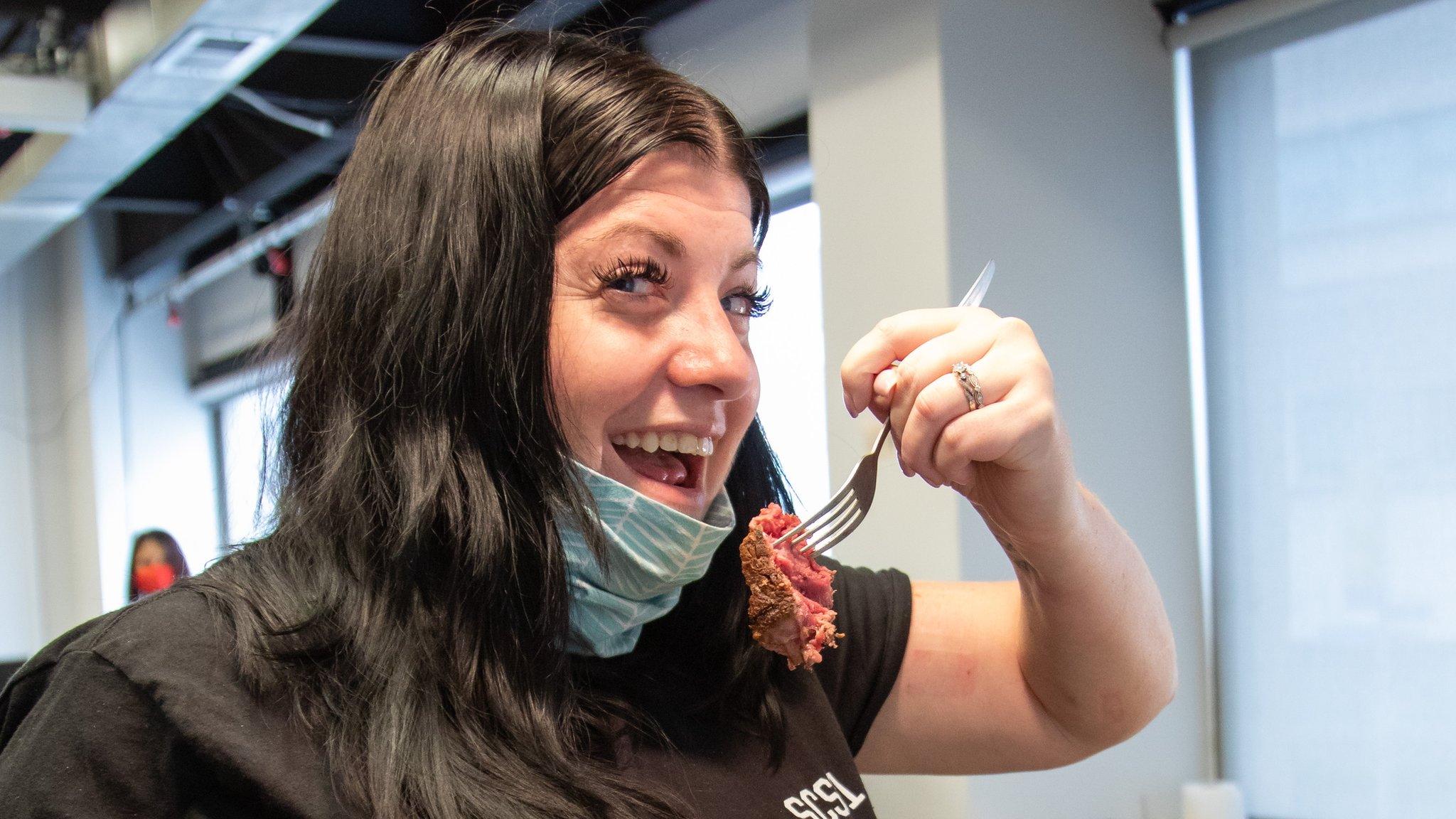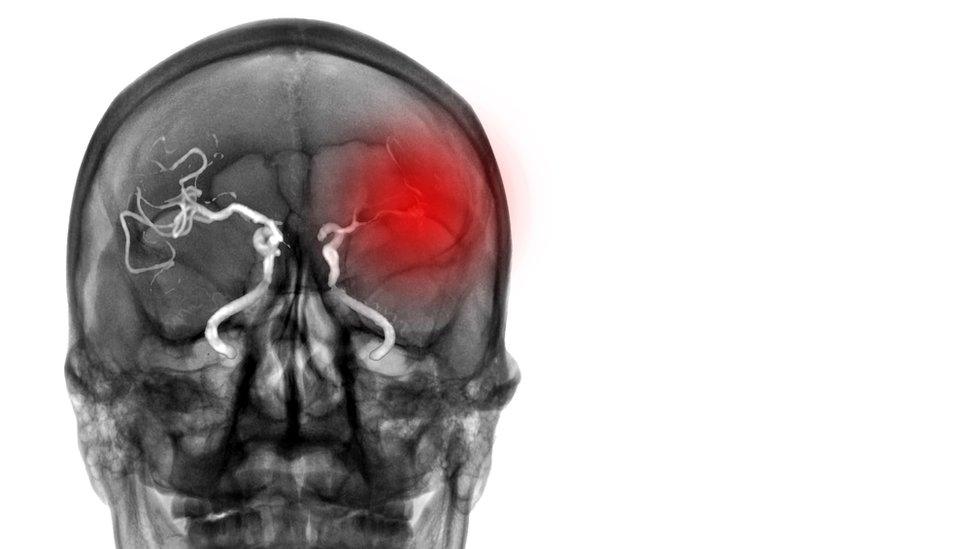West Midlands trial aims to improve patients' stroke recovery
- Published

The trial aims to give more stroke patients access to specialist thrombectomy procedures
A study is under way to assess whether stroke patients make better recoveries if taken directly to a specialist centre.
Instead of going to their local hospital, patients are being taken to Queen Elizabeth Hospital in Birmingham or the Royal Stoke University Hospital.
Both offer thrombectomies, which can improve outcomes if performed within hours of the stroke.
The procedure involves removing blood clots that caused the stroke.
The trial, involving West Midlands Ambulance Service (WMAS), in partnership with Newcastle University, aims to see if direct access to thrombectomy services improves outcomes.
WMAS said up to 10% of stroke patients could be suitable for thrombectomy, but at the moment only 2% receive it.
The study aims to evaluate the outcomes for more than 500 patients who undergo the operation, which involves using a tiny cage at the end of a flexible tube, which enables the removal of the clots.
It is a highly specialised procedure that is performed at the two hospitals in Birmingham and Stoke.
It is also available at University Hospital, Coventry, during office hours and patients in Warwickshire may be taken there instead.

What is a thrombectomy?
A thrombectomy is a relatively new procedure used to treat some ischaemic stroke patients.
An ischaemic stroke is caused by a clot cutting off the blood flow to part of the brain and is the most common type of stroke.
The thrombectomy involves the insertion of a clot removal device, through a catheter, to pull or suck out the clot and restore blood flow.
It is able to remove clots which are too big to be broken down by clot-busting drugs.
A thrombectomy is normally only performed up to six hours after symptoms show and it is only suitable for around one in 10 stroke patients.
Source: Stroke Association

Prof Chris Price, from Newcastle University, said the procedure "greatly improves the chances of recovery" for those suitable, but it must be performed within the first few hours of the stroke starting.
For that to happen, those patients must be taken directly to a hospital able to perform the operation.

Follow BBC West Midlands on Facebook, external, Twitter, external and Instagram, external. Send your story ideas to: newsonline.westmidlands@bbc.co.uk, external
- Published6 May 2023

- Published6 June 2023

- Published20 February 2023

- Published19 May 2023
